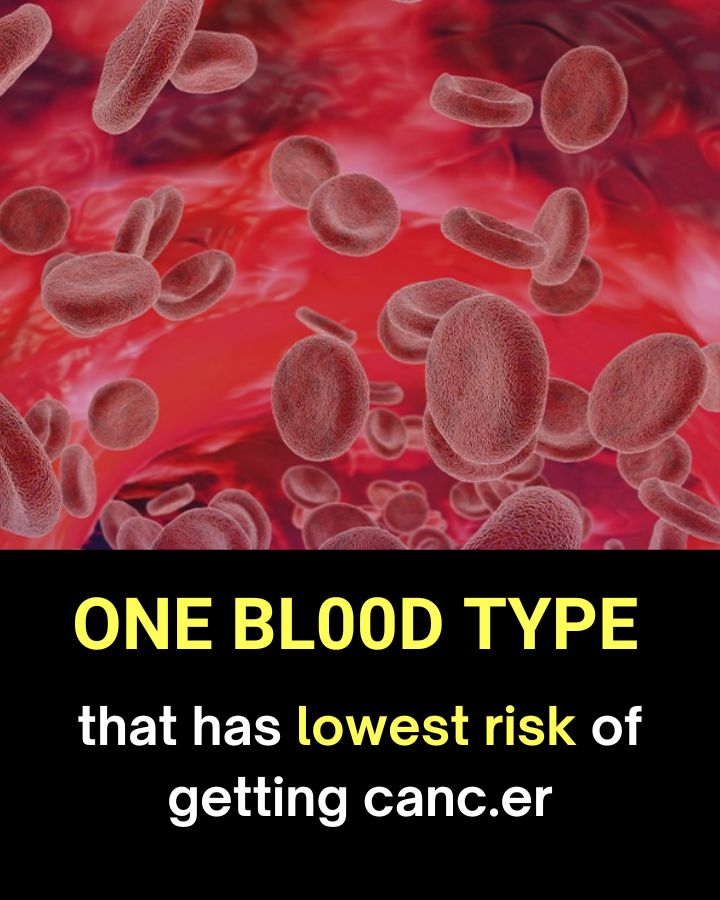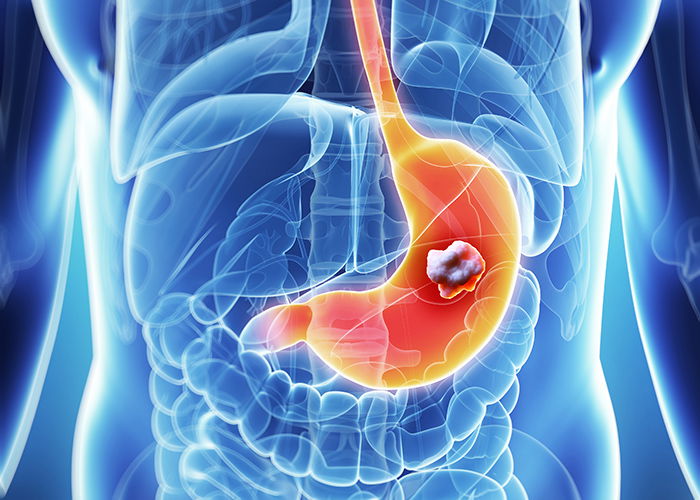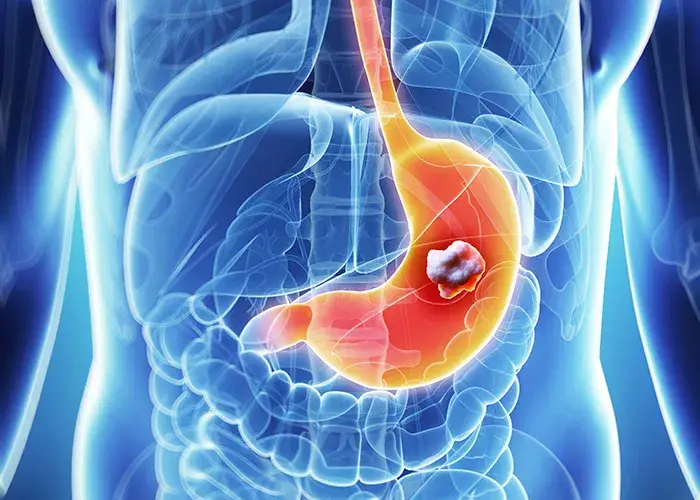Cancer is one of the most dreaded diseases, often growing silently within the body, with symptoms emerging only in its later stages. However, there are early warning signs that, if recognized early, can lead to faster detection and better treatment outcomes. Understanding these symptoms and being vigilant about changes in your body can be key to improving the prognosis of cancer.
Here are five early signs of cancer growth that may require medical attention:
1. Unexpected Weight Loss
A sudden, unexplained weight loss of 10 pounds or more, without changes in diet or exercise, could be an early indicator of cancer. This is often due to cancer cells disrupting the body’s metabolism. Cancer can cause the body to burn more energy than usual, resulting in significant weight loss.
Certain types of cancer can be linked to unexplained weight loss, including:
-
Stomach, Pancreas, or Liver Cancer: These cancers affect digestion and metabolism, leading to weight loss.
-
Lung or Esophageal Cancer: These types of cancer can interfere with swallowing and appetite, contributing to weight loss.
-
Blood Cancers (Leukemia, Lymphoma): Blood cancers impact metabolism and immune function, potentially leading to unintentional weight loss.
While weight loss alone is not necessarily a sign of cancer, if you experience this symptom without a clear cause, it’s crucial to seek medical advice to rule out serious conditions.
2. Constant Fatigue and Weakness

Everyone experiences fatigue from time to time, but when exhaustion persists despite adequate rest, it can be a warning sign of cancer. Cancer-related fatigue is often constant, severe, and doesn’t improve with sleep or rest. Unlike normal tiredness, this fatigue can interfere with daily life and feel overwhelming.
Possible cancers related to persistent fatigue include:
-
Leukemia and Lymphoma: These cancers affect blood cell production and the body’s ability to deliver oxygen, causing fatigue.
-
Colon or Stomach Cancer: These cancers can cause slow internal bleeding, leading to anemia, which results in fatigue.
-
Liver Cancer: The liver plays a critical role in detoxifying the body and metabolizing nutrients. Liver cancer can interfere with these processes, contributing to fatigue.
If fatigue is accompanied by other symptoms, such as unexplained weight loss or pain, it’s important to consult a healthcare provider for a thorough evaluation.
3. Changes in the Skin
The skin can often act as an early warning system, showing signs of underlying cancer. Any new moles, lumps, or discoloration that appear on the skin, or changes in the appearance of existing skin features, should be examined promptly.
Possible skin changes to look for include:
-
Unusual Moles: Moles that appear asymmetrical, have uneven borders, or change in color and size may be signs of melanoma, a type of skin cancer.
-
Sores That Don’t Heal: Persistent sores that do not heal may indicate skin cancer.
-
Yellowing of the Skin and Eyes (Jaundice): This can be a sign of liver or pancreatic cancer, as it suggests that the liver is not functioning properly.
-
Dark Spots or Excessive Itching: While these can be harmless, persistent dark spots or itching may be related to cancer of internal organs.
Any noticeable skin changes that don’t improve should be addressed by a doctor, as early detection can make a significant difference in treatment outcomes.
4. Persistent Pain That Doesn’t Depart

Chronic pain is common, but cancer-related pain is different. It doesn’t always have an obvious cause and often doesn’t improve with rest or pain medication. Cancer-related pain tends to get worse over time and can indicate that the cancer is spreading or pressing against organs or tissues.
Common types of cancer linked to persistent pain include:
-
Bone Cancer: This can cause deep, localized bone pain, sometimes leading to fractures.
-
Brain Tumors: Persistent headaches, nausea, and vision problems may be signs of a brain tumor.
-
Ovarian or Colorectal Cancer: These cancers can cause persistent pelvic or abdominal pain, sometimes accompanied by changes in bowel habits.
-
Lung Cancer: Chest pain and discomfort are often associated with lung cancer, especially if accompanied by coughing or difficulty breathing.
If you experience chronic or persistent pain without a clear cause, particularly if it lasts for weeks, it is essential to consult with a healthcare professional. Persistent pain that does not improve should always be checked out, especially when accompanied by other symptoms.

5. Unusual Lumps or Swelling
Lumps, swelling, or thickening in any area of the body should not be ignored. These changes are often painless and may gradually grow over time. Cancerous lumps tend to be hard, immobile, and may not be tender to the touch, but they should still be evaluated as a precaution.
Possible cancers linked to lumps or swelling include:
-
Breast Cancer: A lump in the breast or armpit could indicate breast cancer, especially if it’s hard, immovable, and painless.
-
Testicular Cancer: A lump in the testicle is a classic sign of testicular cancer.
-
Throat or Thyroid Cancer: A lump in the neck could be related to cancer in the throat or thyroid.
-
Lymphoma: Swollen lymph nodes in the armpits, groin, or neck can be signs of lymphoma.
Any unexplained lumps or changes in tissue should be examined by a doctor, as early intervention can significantly improve treatment outcomes.
Recognizing the early signs of cancer can dramatically improve the chances of successful treatment. In this second part, we continue to explore additional signs and symptoms that may indicate cancer growth, as well as the importance of early detection.
The Importance of Early Detection
Early detection of cancer is essential for successful treatment. The earlier cancer is detected, the more likely it is that treatment will be effective. This is why paying attention to the changes in your body and seeking medical attention when something feels off is crucial. Many cancers, if caught early, are treatable and manageable. On the other hand, cancer that is detected in its later stages often has a lower survival rate and may require more aggressive treatment options.
Understanding these signs and being proactive about medical checkups can lead to quicker diagnoses, better treatment plans, and, ultimately, better outcomes. However, it’s important to note that not every symptom listed here indicates cancer. Many of these symptoms are also associated with other health conditions. Nevertheless, when multiple symptoms occur together or persist over time, it’s best to consult a healthcare professional for further investigation.

Additional Warning Signs to Watch For
While the five signs mentioned in Part 1 are among the most common, there are other symptoms to keep an eye out for, as they may also be associated with cancer growth. These symptoms include:

6. Persistent Cough or Hoarseness
A persistent cough or hoarseness that doesn’t go away after a few weeks or worsens over time can be a sign of lung cancer or cancer affecting the throat. Lung cancer can cause coughing, wheezing, and difficulty breathing. Similarly, throat cancer can lead to hoarseness, difficulty swallowing, and pain when speaking.
Possible cancers related to persistent cough or hoarseness:
-
Lung Cancer: Persistent coughing, especially if accompanied by blood or mucus, is a common sign.
-
Throat Cancer: Hoarseness, trouble swallowing, and a persistent sore throat may signal throat or laryngeal cancer.
-
Head and Neck Cancer: Changes in voice or constant throat irritation might be linked to cancers of the head and neck region.
If you’ve had a cough for an extended period or are experiencing hoarseness without a clear cause, it’s important to see a healthcare provider.
7. Unexplained Bleeding or Discharge
Unexplained bleeding or discharge from any part of the body can be a warning sign of cancer. This can include vaginal bleeding between periods, blood in the stool, unusual discharge from the nipple, or unexplained nosebleeds. These symptoms should always be investigated to determine the cause.
Possible cancers associated with unexplained bleeding or discharge:
-
Colon Cancer: Blood in the stool, which may appear as red or black, is a key symptom of colorectal cancer.
-
Cervical Cancer: Unexplained vaginal bleeding, particularly after intercourse, can be a sign of cervical cancer.
-
Breast Cancer: Unusual discharge from the nipple, especially if it is bloody, could indicate breast cancer.
-
Lung Cancer: Unexplained coughing up blood or frequent nosebleeds can be early symptoms of lung cancer.
If you experience unexplained bleeding or discharge from any part of the body, it’s crucial to seek medical advice to rule out cancer or other serious health conditions.

8. Difficulty Swallowing or Persistent Indigestion
Persistent difficulty swallowing or chronic indigestion that doesn’t improve with typical treatments could be a sign of cancer in the throat, esophagus, or stomach. As cancers of the digestive system grow, they can interfere with the body’s ability to properly digest and process food.
Possible cancers related to difficulty swallowing or indigestion:
-
Esophageal Cancer: Difficulty swallowing or a feeling that food is stuck in the throat can be a symptom of esophageal cancer.
-
Stomach Cancer: Chronic indigestion, bloating, or feeling full after eating small amounts of food may be signs of stomach cancer.
-
Throat Cancer: Pain or difficulty swallowing, especially if accompanied by a sore throat or hoarseness, may indicate throat cancer.
If difficulty swallowing, indigestion, or a persistent feeling of fullness continues, it’s important to see a doctor to identify the underlying cause.
9. Changes in Bowel or Bladder Habits
Changes in bowel or bladder habits, such as chronic constipation, diarrhea, or blood in the stool, can be an early sign of cancer. Likewise, frequent urination, painful urination, or blood in the urine may indicate cancers affecting the urinary system.
Possible cancers related to bowel or bladder changes:
-
Colon Cancer: Changes in bowel movements, such as persistent constipation or diarrhea, and blood in the stool are common signs of colon cancer.
-
Bladder Cancer: Blood in the urine, frequent urination, or pain while urinating may be symptoms of bladder cancer.
-
Prostate Cancer: Difficulty starting or stopping urination, along with blood in the urine, can be signs of prostate cancer.
-
Kidney Cancer: Blood in the urine and changes in urinary habits could indicate kidney cancer.
Any persistent changes in bowel or bladder function should be evaluated by a healthcare professional.
10. Persistent Fever or Infections
A persistent fever or frequent infections that don’t seem to go away may be a sign that the immune system is compromised by cancer. Some cancers, particularly blood cancers like leukemia and lymphoma, can weaken the immune system, making it harder for the body to fight infections.
Possible cancers associated with fever or infections:
-
Leukemia and Lymphoma: These cancers affect the immune system, making individuals more prone to infections and causing persistent fevers.
-
Liver Cancer: Liver cancer can cause a persistent fever as the body struggles to fight off the disease.
-
Bone Cancer: Bone pain and fever are common symptoms of bone cancer or cancers that spread to the bones.
If you experience a fever that persists over time or frequent infections that don’t resolve, it’s important to seek medical attention to determine the cause.
Conclusion: The Importance of Proactive Health Monitoring
Cancer often doesn’t exhibit clear symptoms in its early stages, which is why it’s essential to pay attention to any changes in your body. While many of the signs listed above could also be related to non-cancerous conditions, when they occur together or persist over time, they warrant medical investigation. Early detection of cancer significantly improves the chances of successful treatment, and being proactive about your health can help catch the disease before it spreads.
If you notice any of the symptoms discussed—such as unexplained weight loss, persistent pain, unusual lumps, or changes in bowel habits—don’t hesitate to consult with a healthcare professional. Early intervention can save lives, and by addressing these signs early, you can take control of your health and well-being. Remember, your health is invaluable, and seeking medical advice when in doubt could make all the difference.

